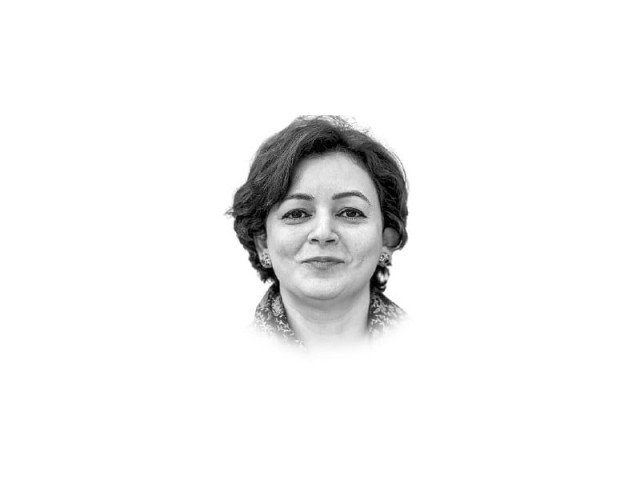Textiles as a medium of expression
Fast fashion has taken over the industry filling the landfills.

Dearest Sania Samad,
On behalf of the atelier at Kaargah-e Ruman, I am writing to express our gratitude for your kind visit. It was indeed a memorable experience to have you as a resident artist this winter. Kaargah-e Ruman is a place that facilitates creative practitioners to deliberate, test and materialise their artistic visions in a vibrant, homely setting. Each year, Bano's atelier; Sadia (in-house discussant), Nazia Baji (tailoress), Iftikhar (zardozi embroiderer), Ahmed Virk (to go person & rider), Maqsood (cook), Arasto (labrador) and two not so young kids of the house (makeshift drivers and entertainers) welcome the artist to experience a cozy environment that is simple, investigative and contemplative. Kamran and Nasir's consultations and emotional support for rightful 'conduct' are on the house too. This process of learning is certainly two-way. The artist lives in a real space, inspiring the visitors (students, learners; larger family & friends of Ruman) and getting motivated simultaneously. New places are explored, recipes are tried and stories are told. Methods and procedures of creation are studied and experimented making art a way of living and not a career to pursue.
This is not the first time, the atelier explored textiles as a medium of expression yet your fascination with textiles was exemplary. In your creative practice, textiles serve as vessels for the exploration of both personal and collective memory and history. Through materials imbued with cultural and emotional resonance, you claim to weave narratives that resist unraveling in conflict, embracing the layered complexity of identity and heritage. Puncturing fabric with needles as you embroider is a deliberate gesture and so is adorning it with patterns and colours. At a personal level it is cathartic yet an interference of time on collective altitude as each stitch bridges fragmented memories, reimagining them as opportunities for new connections. This is how you transform textiles into archives that are not static but alive, inviting touch, evoking emotion and sparking dialogue between past and present. The birds and animals that often populate your surfaces; re-purposed clothing, velvets, silks, and cotton, are central to this archive. These cats, parrots, sparrows and lotuses enhance the visual appeal of the fabrics, evoke mystery and make strong socio-political statements. Their presence steeped in colloquial and literary references gives multiple meanings to the otherwise wearable pherns, shirts, ghararas, achkans and chaders where they appear as astounding motifs exquisitely crafted with beads and painstakingly embroidered with single tar silk threads or aary work. Here, the dedication and commitment of the workers are remarkable. I bet the project 'Punctured Boundaries' along with other works will make its mark at 1x1 Gallery Dubai next week.
I was more drawn to the ways your textile pieces relate to the issues of economy, psychology, environment, and mechanical and technological progression. Not sure if we can tag the lack of passion and respect for trade with industrialisation or AI. Perhaps it's the regression of the human mind that does not find glory in hand-work or natural fibers. Fast fashion has taken over the industry filling the landfills. It has erased the greater ideas of investing in timeless pieces, upcycling or swapping and passing on clothes that offer emotional attachment and insubstantial involvement to the human psyche. For an optimist and a romanticist who wants 'to build a life on the ruins of the past' i.e. learning from mistakes and moving forward carefully and more conscientiously to make this life a pleasant, peaceful experience for ourselves and posterity, your visit was an affirmation that there are others who think similarly and are willing to 'slow down' in certain ways to figure out the right direction that can salvage the humanity.
ALSO to read 'Anarchy' again with you was a unique experience. Love the way, it resonated with Manto's perception of division of India. Look forward to presenting 'Reading Partition' in Lahore soon. Guess what! Singh's 'The Fabric of Our Lives: The Story of Fabindia' is on my reading desk these days, all thanks to you.
Love, Bano.
January, 25















COMMENTS
Comments are moderated and generally will be posted if they are on-topic and not abusive.
For more information, please see our Comments FAQ